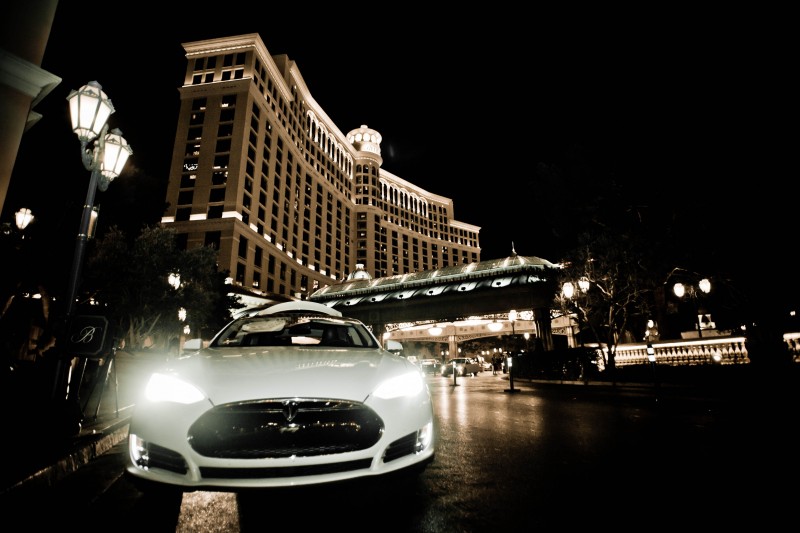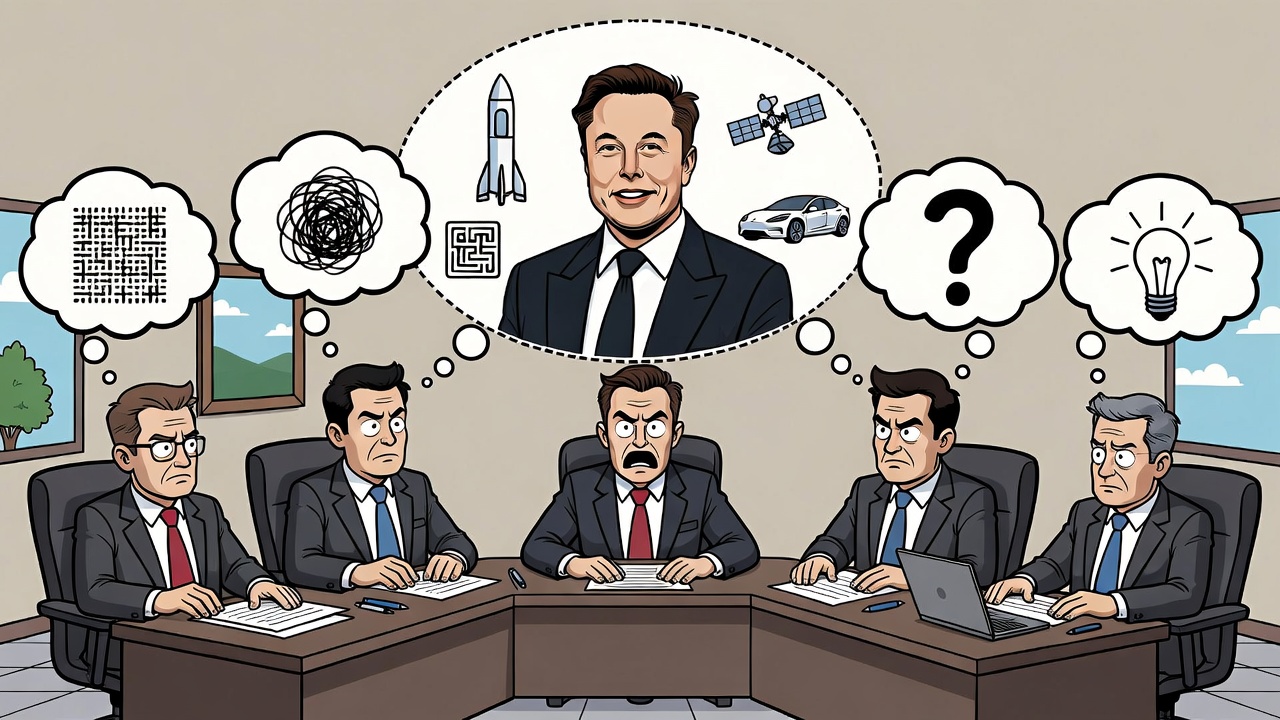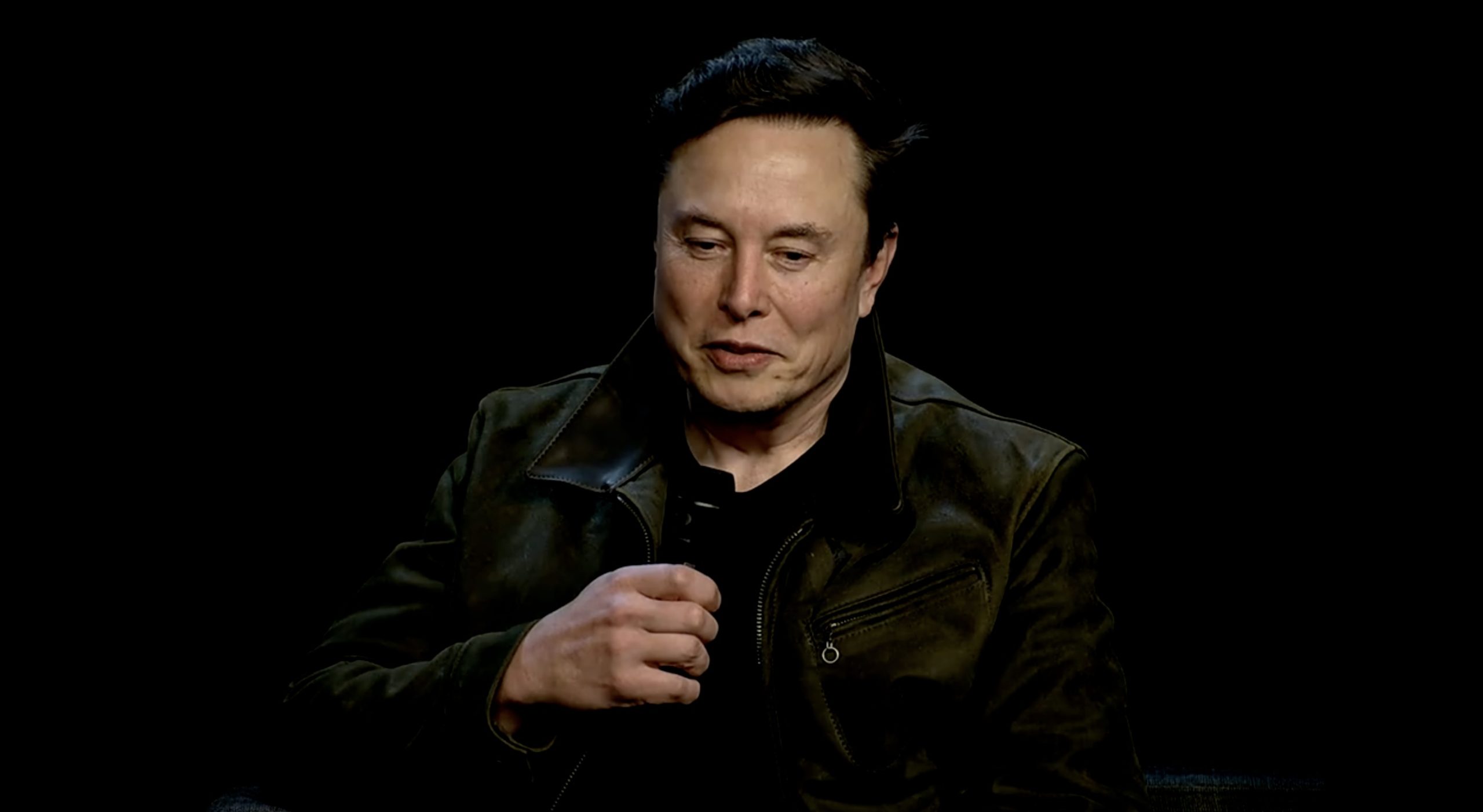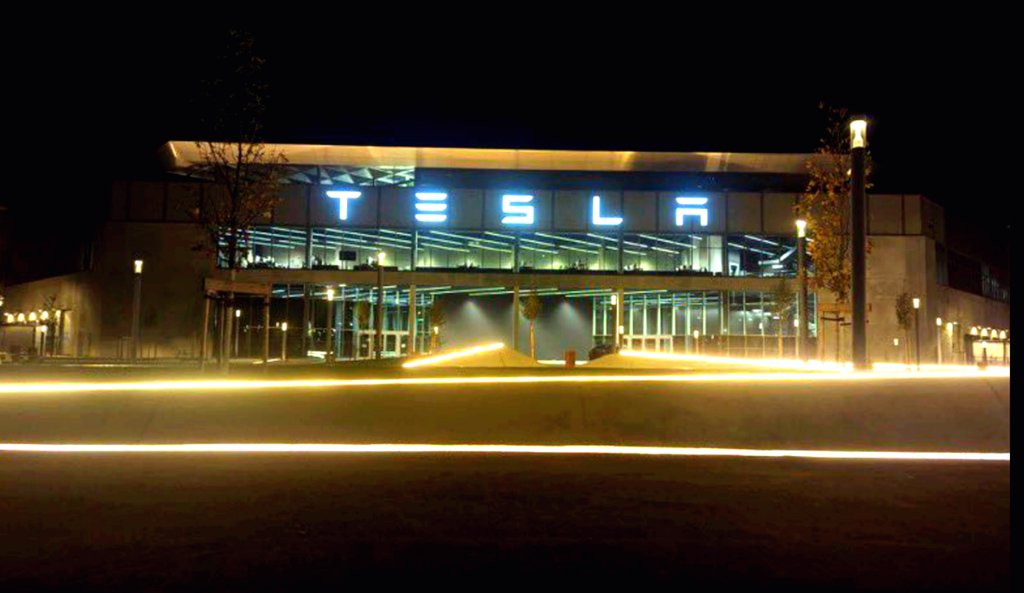News
How Tesla’s ridesharing network could disrupt the airline industry

The auto industry is changing. Autonomous and electric cars are becoming more available sooner than many people think. This will become even more prevalent once Tesla delivers upwards of 500k to 1 million self-driving vehicles per year by the end of the decade. But this change from gas-powered cars to a world powered by battery electric vehicles won’t be isolated to the auto industry. It will likely affect other sectors, including the airline industry.
Disrupting the Airline Industry
As advances in the auto industry make traveling by car more attractive, airlines will have to adjust to the steeper competition. Short haul flights, flights less than 300 miles, will be most significantly affected. Short haul flights cost an average of $120 above the cost of driving, and reduces door-to-door travel time by roughly an hour. These types of city to nearby city flights make up 25% of all US domestic departures.
According to a new Morgan Stanley study, if demand for short haul flights completely disappeared, it would lead to about a 15% loss in earnings. The study also acknowledged that such a change would take at least five to ten years, giving the airline industry time to adjust.
Modern Car Travel
Even without Tesla’s ridesharing network, widespread adoption of electric cars and existing ridesharing services are making people reconsider their reasons for traveling by plane. Services such as Uber and Lyft are more cost effective than flying, and oftentimes more convenient due to the ease of scheduling a ride and with more range of options available. Travelers sacrifice the shorter travel time of a flight, but the difference is oftentimes not too significant.
Southern California-based Tesla-only intercity shuttle service, Tesloop, currently provides transportation service between Los Angeles, Las Vegas and Palm Springs, and will be looking to expand its operations into new markets. The drivers, which the company refers to as “pilots”, transport passengers using Tesla Autopilot. And like the experience in an airplane, Tesloop provides snacks, water and Wi-Fi to its passengers. Why is this important? By replicating the experience of airline travel, while doing so at lesser cost than a traditional short haul flight, Tesloop presents a compelling reason to use ground transportation and forego vehicle ownership.
The Future of Car Travel
Ridesharing, autonomous cars and electric cars are three trends that are not going away any time soon. In fact, they will likely continue to become more commonplace and alter the way we live in meaningful ways.
As technology continues to advance, the comfort, flexibility and reliability of ridesharing, electric cars and autonomous cars will increase as the cost decreases. This will make them more attractive to travelers and further threaten airlines.
In the future, new forms of automobile travel will begin to improve in the areas where flying currently has an advantage. Autonomous cars will make traveling on the roads safer for everyone. Once human error is taken out of the equation, speed limits will likely be increased, lessening the time advantage flying currently has over driving.
Tesla’s free long distance travel for life Supercharging model combined with advances in Autopilot and self-driving technology, plus ridesharing, are already altering the way we think about travel, and their impact on other industries will only increase with time. New technologies bring about change. New ideas create new opportunities in economies and in our way of life.
The advancements will likely disrupt many industries that exist today, including the airline industry. Airlines will have to adjust to the changes — but who knows? Maybe one day autonomous and electric planes (or flying cars) will disrupt the autonomous electric car ridesharing economy.

Elon Musk
Musk company boycott proposal at City Council meeting gets weird and ironic
The City of Davis in California held a weekly city council meeting on Tuesday, where it voted on a proposal to ban Musk-operated companies. It got weird and ironic.

A city council meeting in California that proposed banning the entry of new contracts with companies controlled by Elon Musk got weird and ironic on Tuesday night after councilmembers were forced to admit some of the entities would benefit the community.
The City of Davis in California held a weekly city council meeting on Tuesday, where it voted on a proposal called “Resolution Ending Engagement With Elon Musk-Controlled Companies and To Encourage CalPERS To Divest Stock In These Companies.”
The proposal claimed that Musk ” has used his influence and corporate platforms to promote political ideologies and activities that threaten democratic norms and institutions, including campaign finance activities that raise ethical and legal concerns.”
We reported on it on Tuesday before the meeting:
California city weighs banning Elon Musk companies like Tesla and SpaceX
However, the meeting is now published online, and it truly got strange.
While it was supported by various members of the community, you could truly tell who was completely misinformed about the influence of Musk’s companies, their current status from an economic and competitive standpoint, and how much some of Musk’s companies’ projects benefit the community.
City Council Member Admits Starlink is Helpful
One City Council member was forced to admit that Starlink, the satellite internet project established by Musk’s SpaceX, was beneficial to the community because the emergency response system utilized it for EMS, Fire, and Police communications in the event of a power outage.
After public comments were heard, councilmembers amended some of the language in the proposal to not include Starlink because of its benefits to public safety.
One community member even said, “There should be exceptions to the rule.”
🚨 After the City of Davis, California, held its City Council meeting on Tuesday and voted on a resolution called “Resolution Ending Engagement With Elon Musk-Controlled Companies and To Encourage CalPERS To Divest Stock In These Companies,” it was forced to admit that it needs… pic.twitter.com/hQiCIX3yll
— TESLARATI (@Teslarati) February 19, 2026
Community Members Report Out of Touch Mainstream Media Narratives
Many community members very obviously read big bold headlines about how horribly Tesla is performing in terms of electric vehicles. Many pointed to “labor intimidation” tactics being used at the company’s Fremont Factory, racial discrimination lawsuits, and Musk’s political involvement as clear-cut reasons why Davis should not consider his companies for future contracts.
However, it was interesting to hear some of them speak, very obviously out of touch with reality.
Musk has encouraged unions to propose organizing at the Fremont Factory, stating that many employees would not be on board because they are already treated very well. In 2022, he invited Union leaders to come to Fremont “at their convenience.”
The UAW never took the opportunity.
Some have argued that Tesla prevented pro-union clothing at Fremont, which it did for safety reasons. An appeals court sided with Tesla, stating that the company had a right to enforce work uniforms to ensure employee safety.
Another community member said that Tesla was losing market share in the U.S. due to growing competition from legacy automakers.
“Plus, these existing auto companies have learned a lot from what Tesla has done,” she said. Interestingly, Ford, General Motors, and Stellantis have all pulled back from their EV ambitions significantly. All three took billions in financial hits.
One Resident Crosses a Line
One resident’s time at the podium included this:
Another member of the community did this…a member of the City Council admonished him and it came to a verbal spat https://t.co/zWvKCiCkie pic.twitter.com/1L334qq9av
— TESLARATI (@Teslarati) February 19, 2026
He was admonished by City Council member Bapu Vaitla, who said his actions were offensive. The two sparred verbally for a few seconds before their argument ended.
City Council Vote Result
Ultimately, the City of Davis chose to pass the motion, but they also amended it to exclude Starlink because of its emergency system benefits.
Elon Musk
Elon Musk’s xAI Secures $3B Investment From Saudi AI Firm HUMAIN
The transaction converts HUMAIN’s xAI stake into SpaceX shares, positioning the Saudi-backed firm as a significant minority shareholder in the newly combined entity.

Saudi artificial intelligence firm HUMAIN has confirmed a $3 billion Series E investment in xAI just weeks before the startup’s merger with SpaceX.
The transaction converts HUMAIN’s xAI stake into SpaceX shares, positioning the Saudi-backed firm as a significant minority shareholder in the newly combined entity.
The investment gives HUMAIN exposure to what has been described as one of the largest technology mergers on record, combining xAI’s artificial intelligence capabilities with SpaceX’s scale, infrastructure, and engineering base, as noted in a press release.
“This investment reflects HUMAIN’s conviction in transformational AI and our ability to deploy meaningful capital behind exceptional opportunities where long-term vision, technical excellence, and execution converge, xAI’s trajectory, further strengthened by its acquisition by SpaceX, one of the largest technology mergers on record, represents the kind of high-impact platform we seek to support with significant capital” HUMAIN CEO Tareq Amin stated.
The investment also positions HUMAIN for potential long-term equity upside should SpaceX proceed with a public offering.
The investment expands on an existing partnership announced in November 2025 at the U.S.-Saudi Investment Forum. Under that agreement, HUMAIN and xAI committed to jointly develop more than 500 megawatts of next-generation AI data center and compute infrastructure in Saudi Arabia.
The collaboration also includes deployment of xAI’s Grok models within the kingdom, aligning with Saudi Arabia’s broader strategy to build domestic AI capacity and attract global technology players.
HUMAIN, backed by the Public Investment Fund, is positioning itself as a full-stack AI player spanning advanced data centers, cloud infrastructure, AI models, and applied solutions. The Series E investment deepens its role from development partner to major shareholder in the Musk-led AI and space platform.
News
Tesla Giga Berlin plant manager faces defamation probe after IG Metall union complaint
Prosecutors in Frankfurt (Oder) confirmed they have opened a defamation probe into Gigafactory Berlin plant manager André Thierig.

Tesla’s Giga Berlin plant manager is now under investigation after a complaint from trade union IG Metall, escalating tensions ahead of next month’s works council elections.
Prosecutors in Frankfurt (Oder) confirmed they have opened a defamation probe into Gigafactory Berlin plant manager André Thierig, as per a report from rbb24.
A spokesperson for the Frankfurt (Oder) public prosecutor’s office confirmed to the German Press Agency that an investigation for defamation has been initiated following a criminal complaint filed by IG Metall against Thierig.
The dispute stems from Tesla’s allegation that an IG Metall representative secretly recorded a works council meeting using a laptop. In a post on X, Thierig described the incident as “truly beyond words,” stating that police were called and a criminal complaint was filed.
“What has happened today at Giga Berlin is truly beyond words! An external union representative from IG Metall attended a works council meeting. For unknown reasons, he recorded the internal meeting and was caught in action! We obviously called police and filed a criminal complaint!” Thierig wrote in a post on X.
Police later confirmed that officers did seize a computer belonging to an IG Metall member at Giga Berlin. Prosecutors are separately investigating the union representative on suspicion of breach of confidentiality and violation of Germany’s Works Constitution Act.
IG Metall has denied Tesla’s allegations. The union claimed that its member offered to unlock the laptop for review in order to accelerate the investigation and counter what it called false accusations. The union has also sought a labor court injunction to “prohibit Thierig from further disseminating false claims.”
The clash comes as Tesla employees prepare to vote in works council elections scheduled for March 2–4, 2026. Approximately 11,000 Giga Berlin workers are eligible to participate in the elections.








